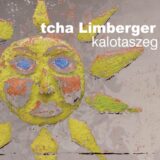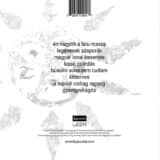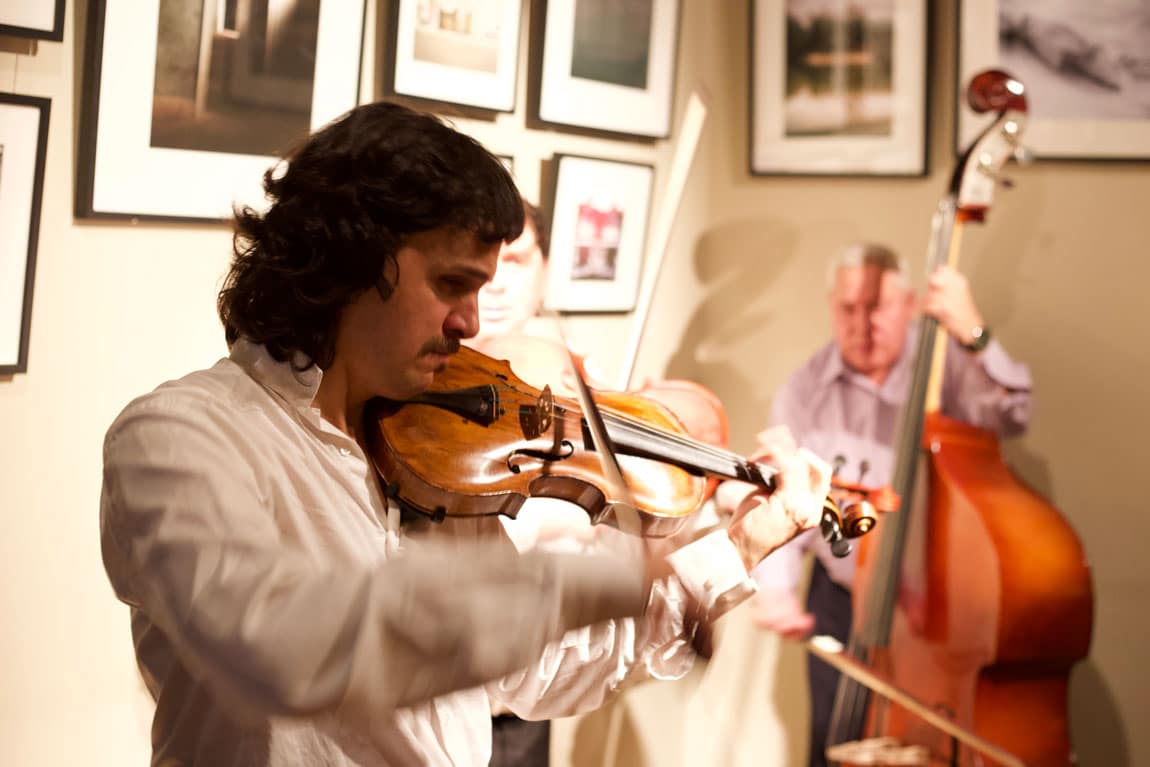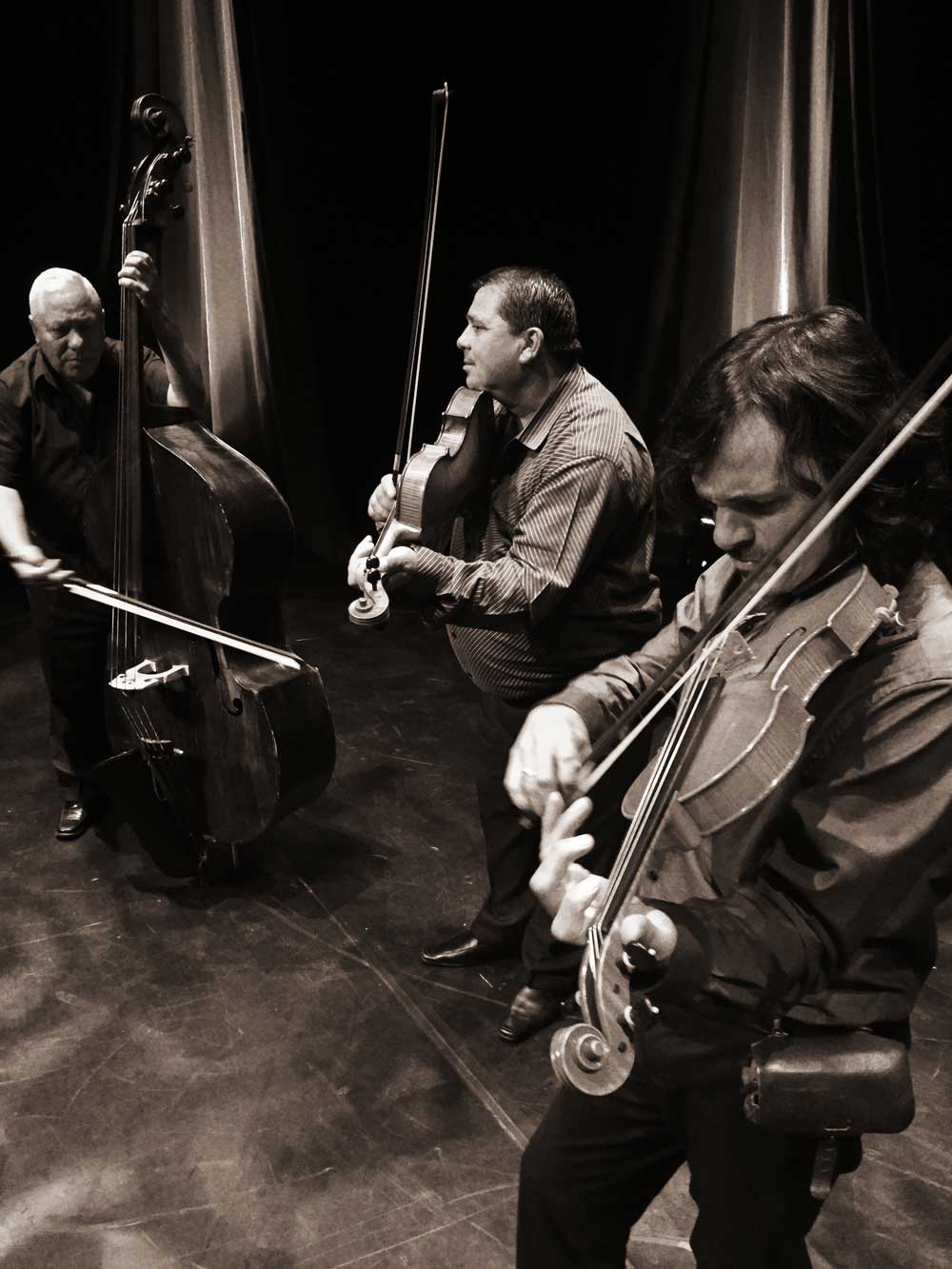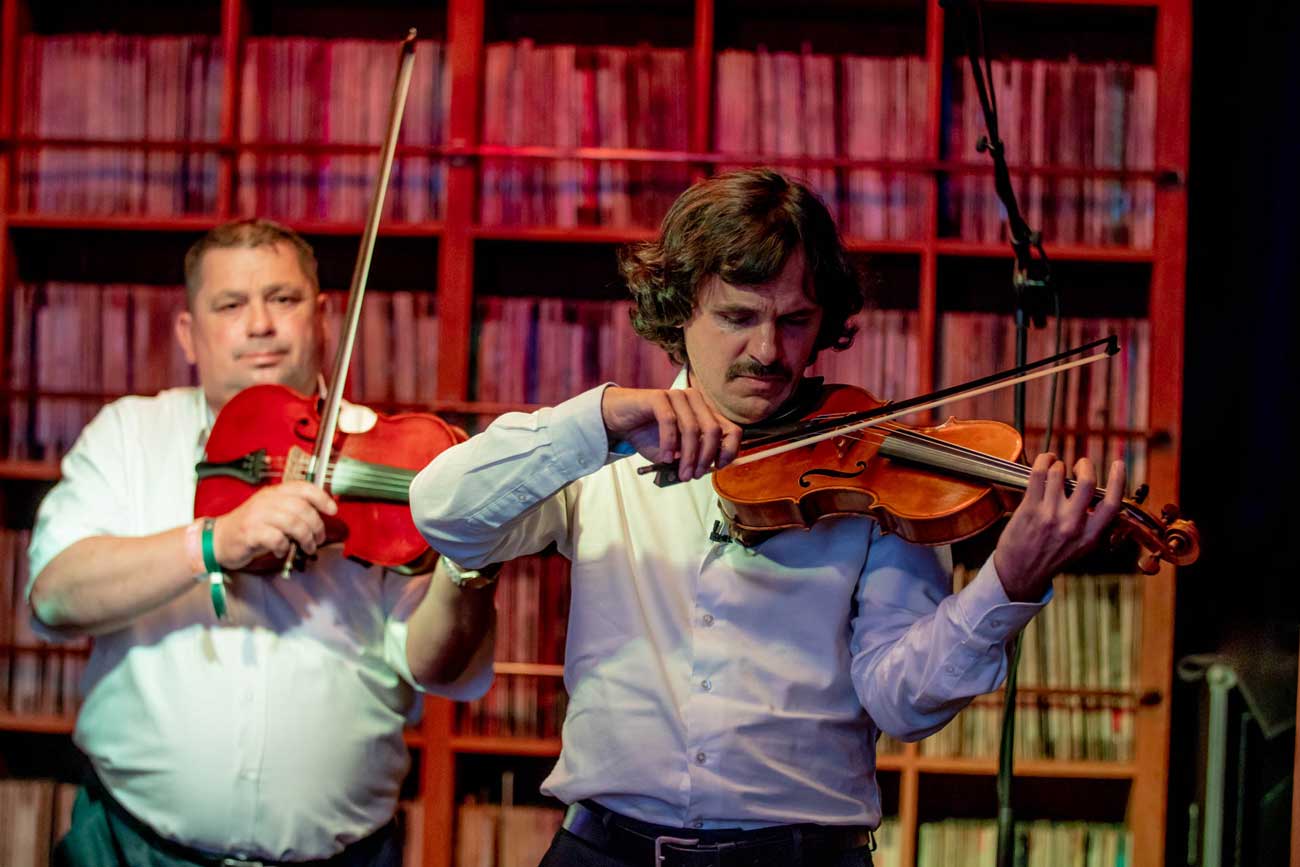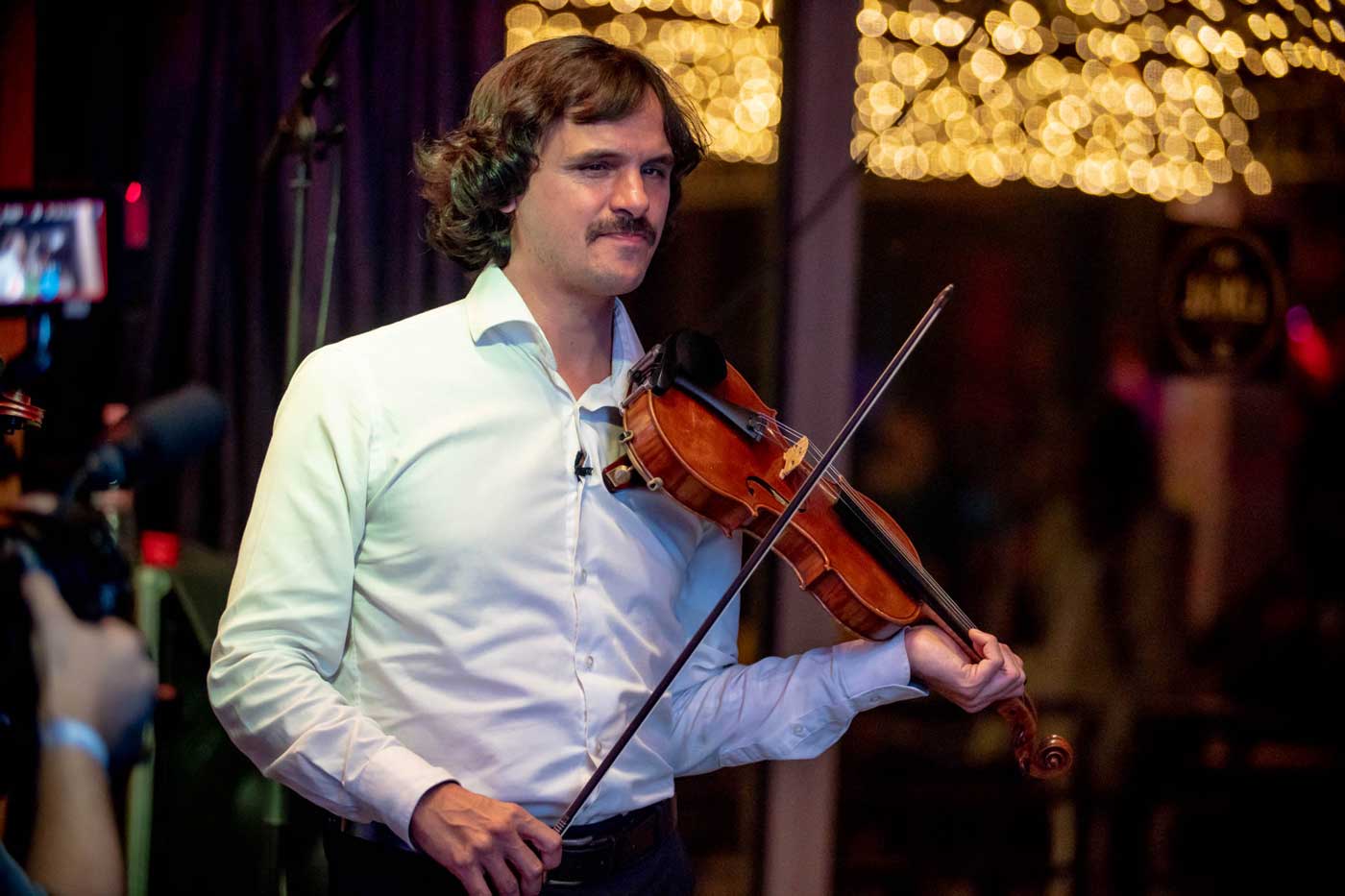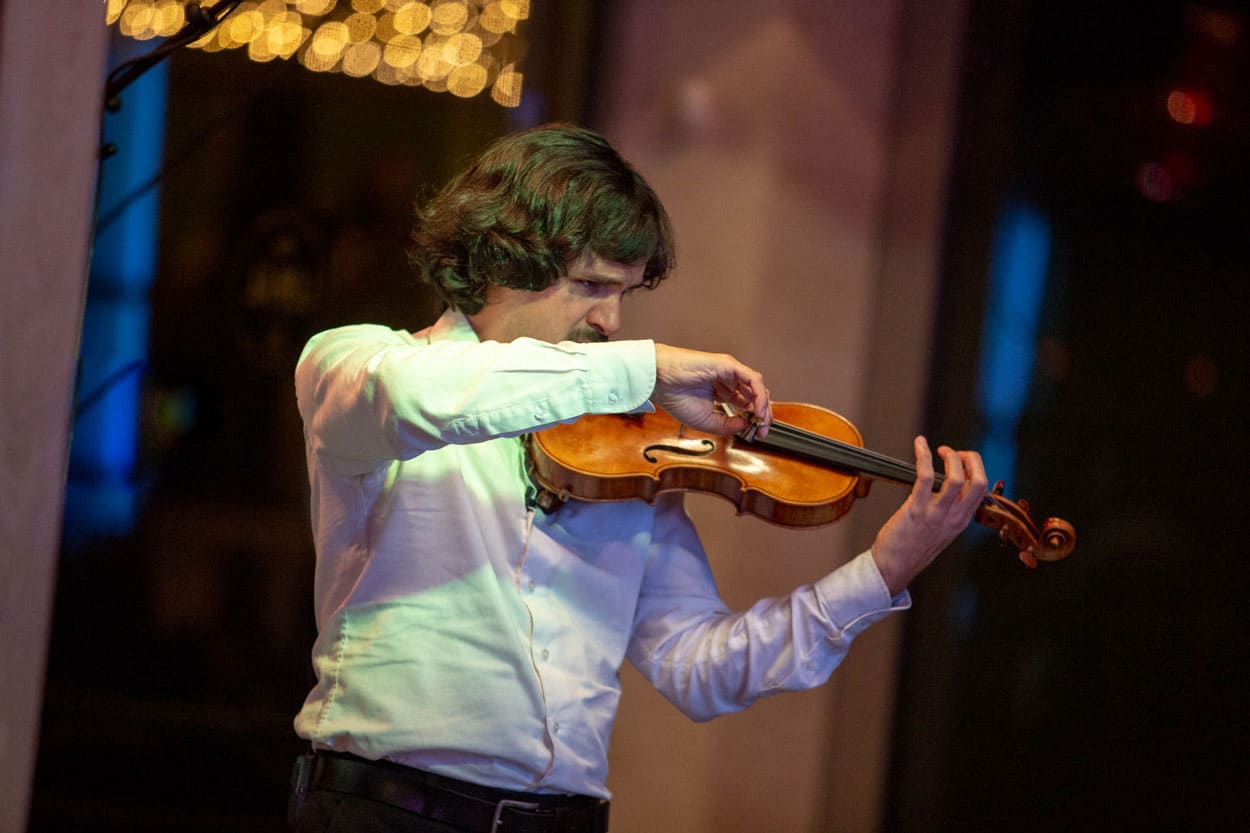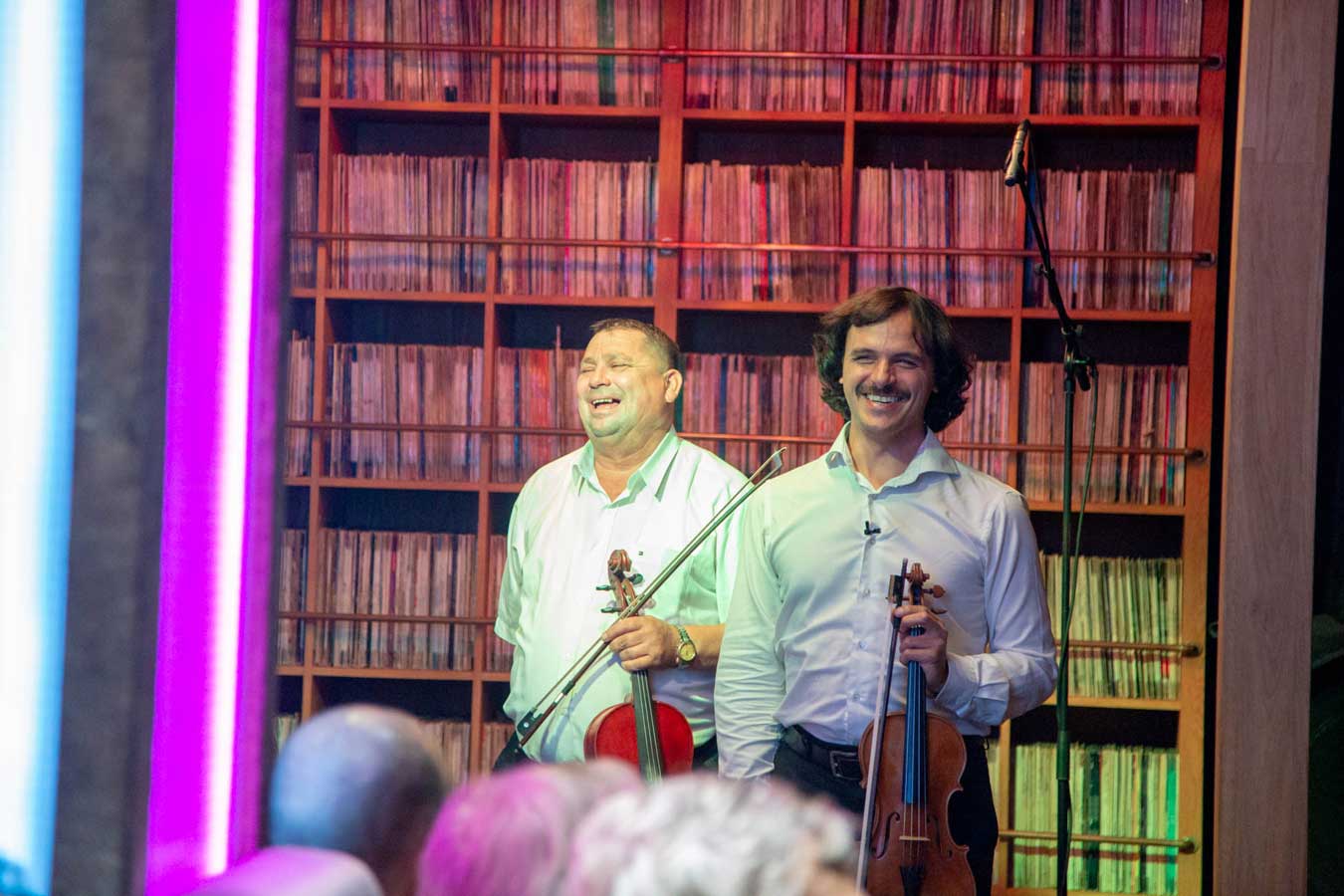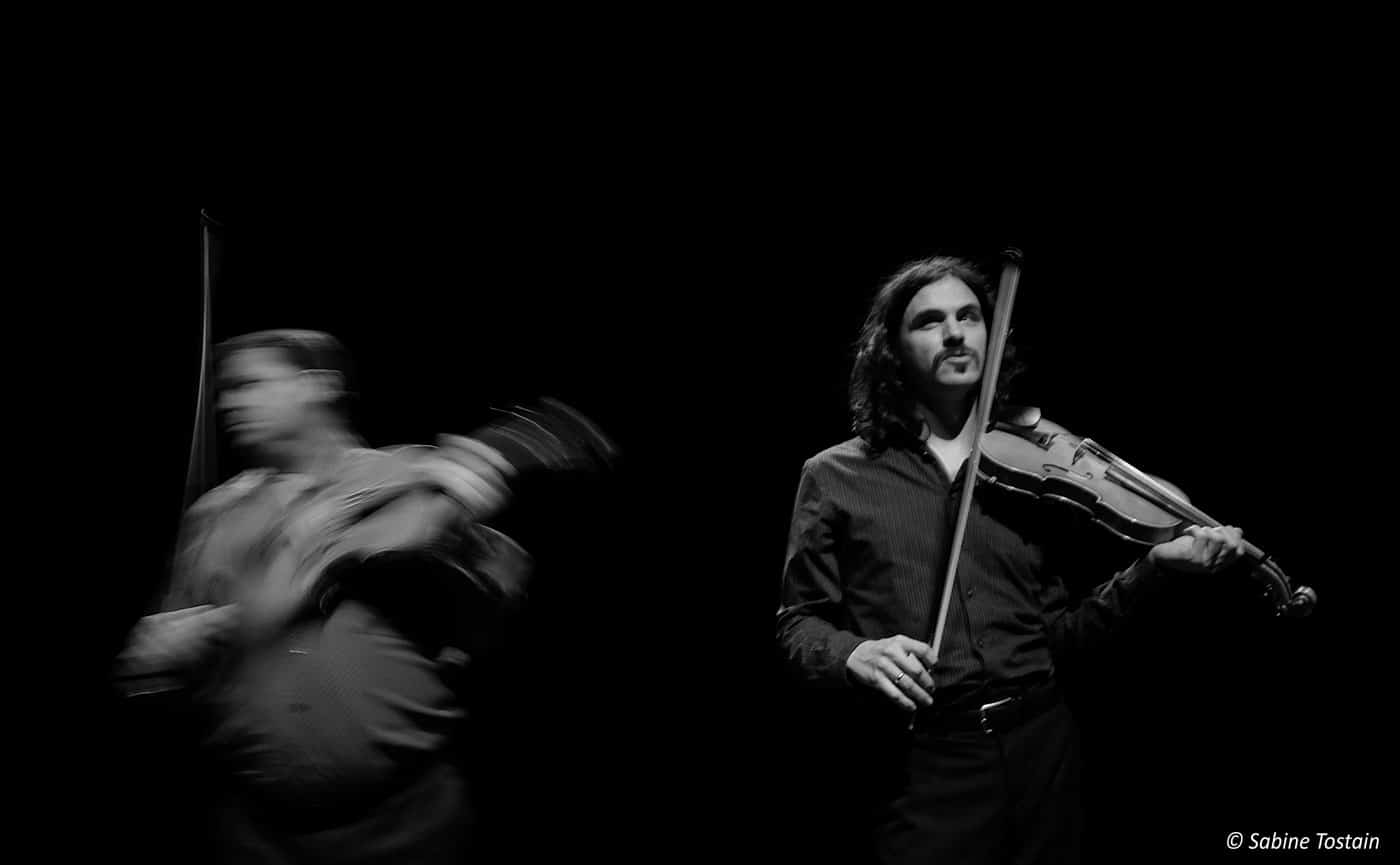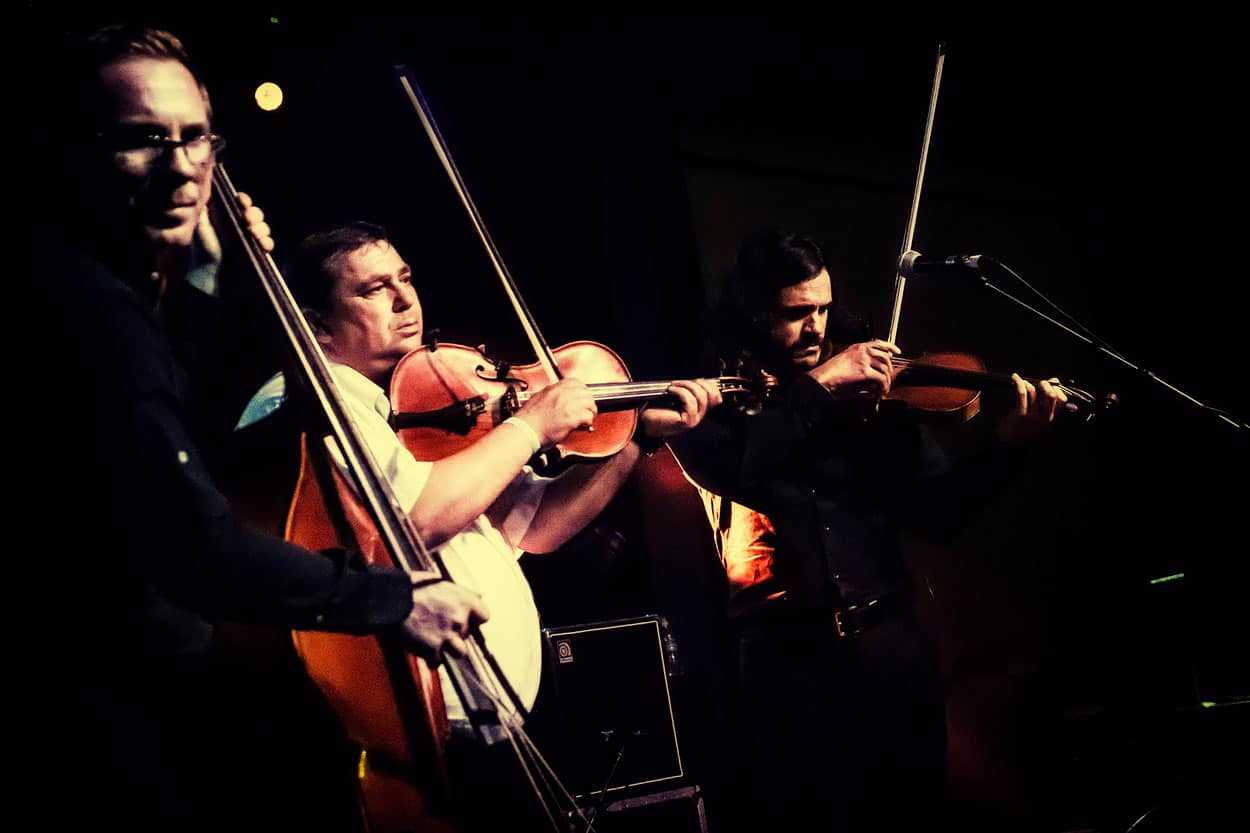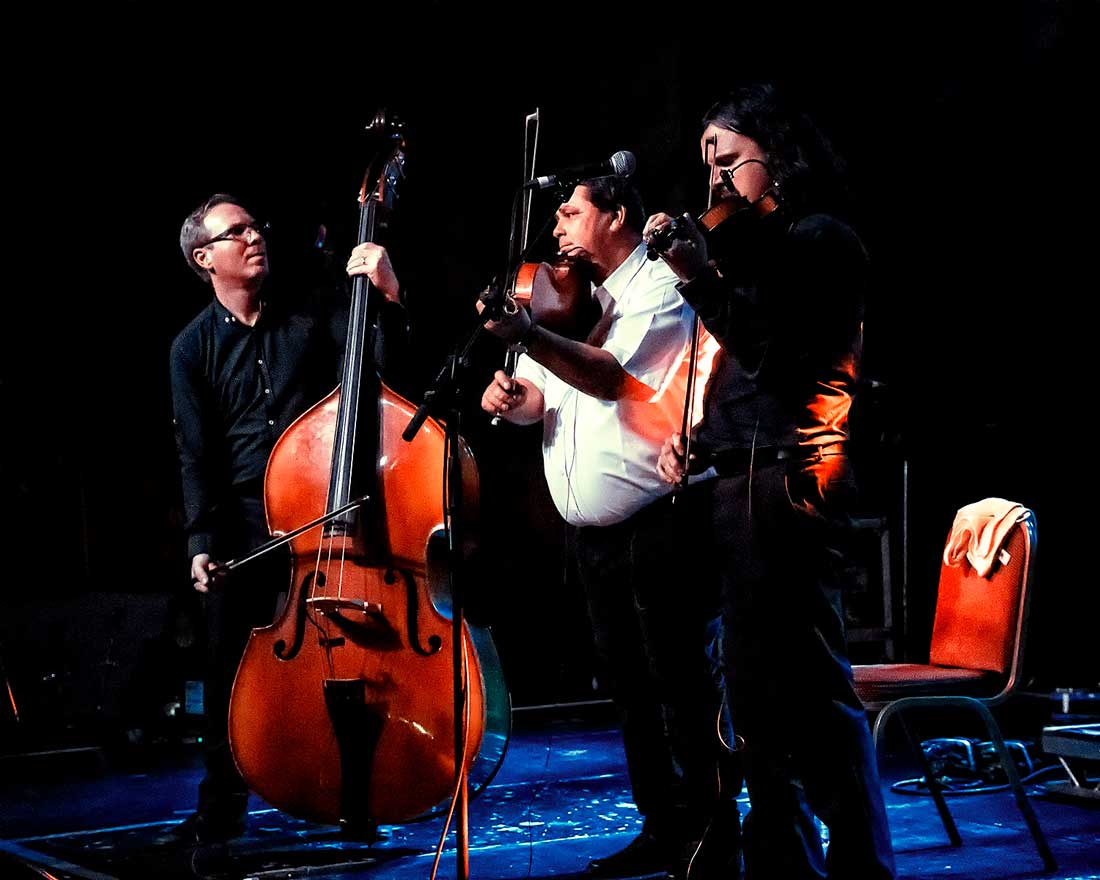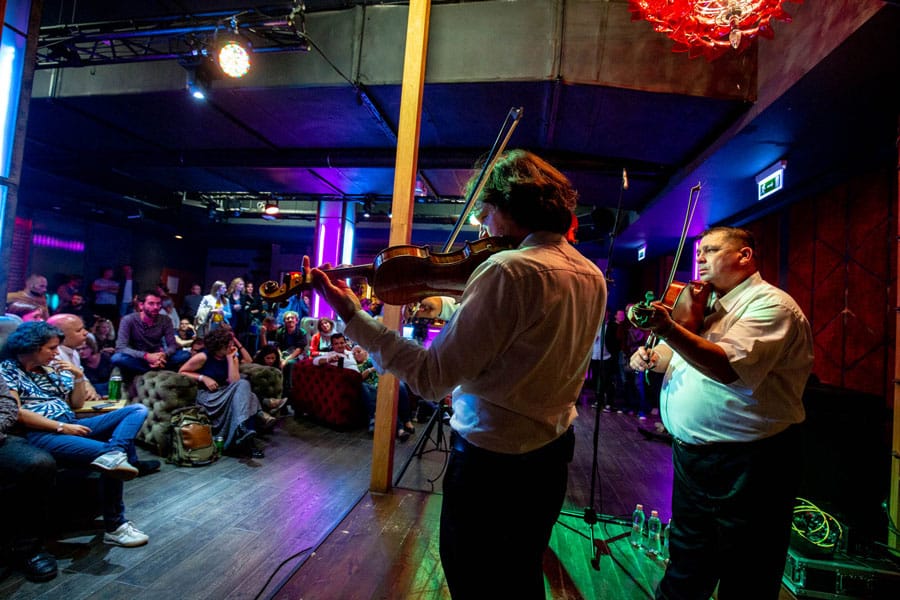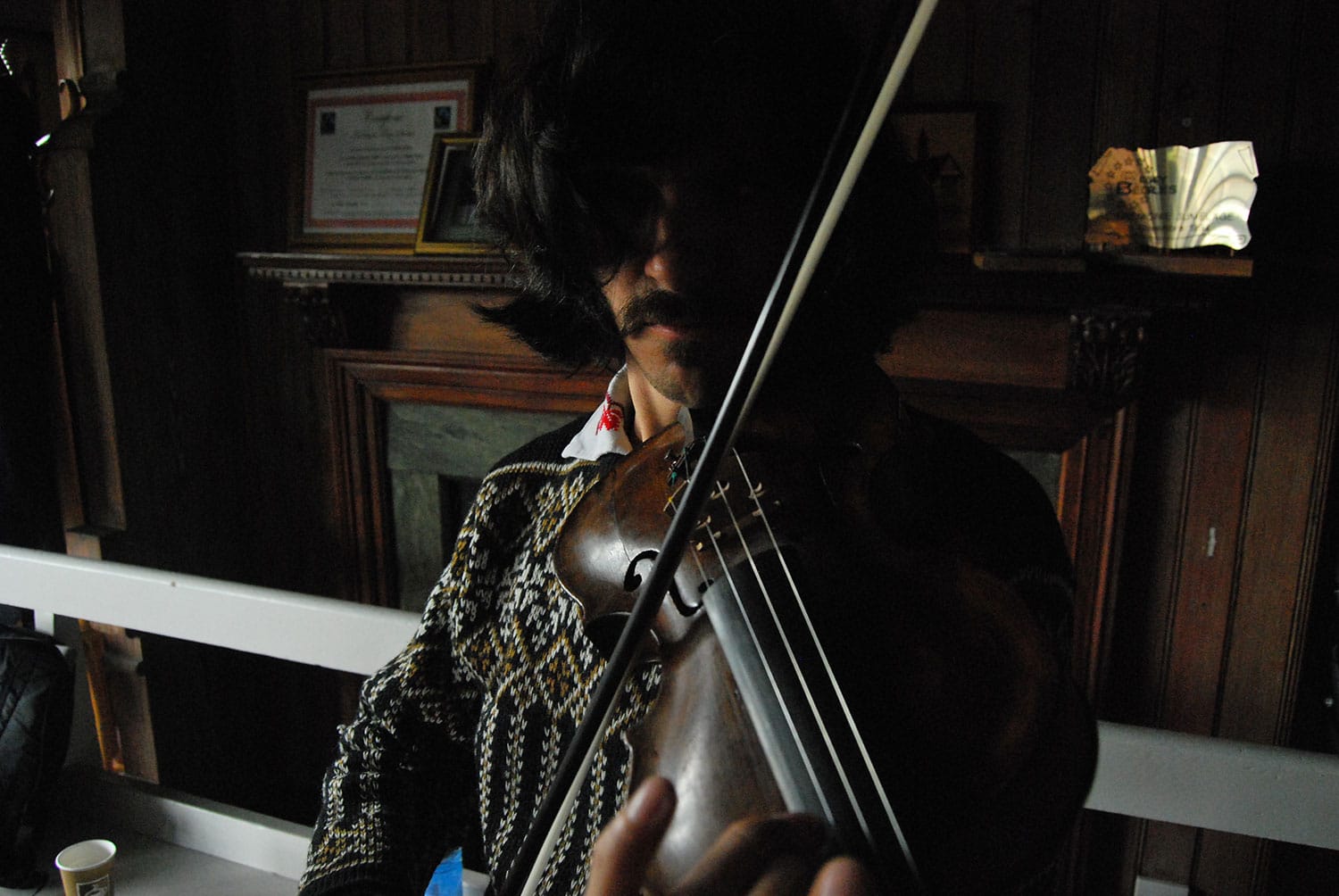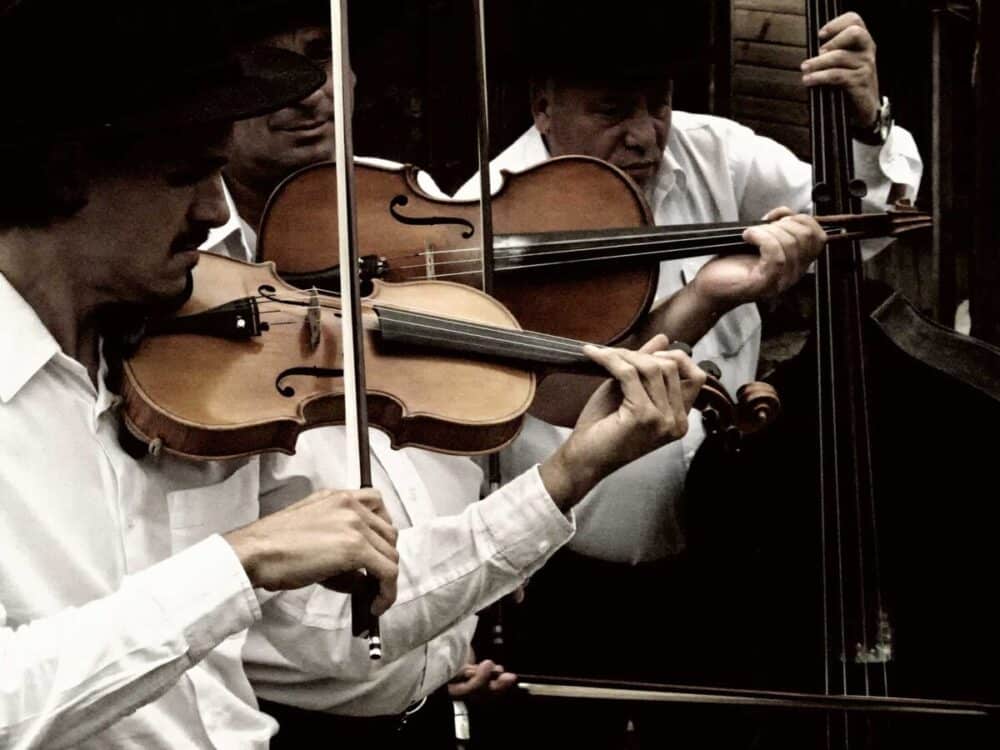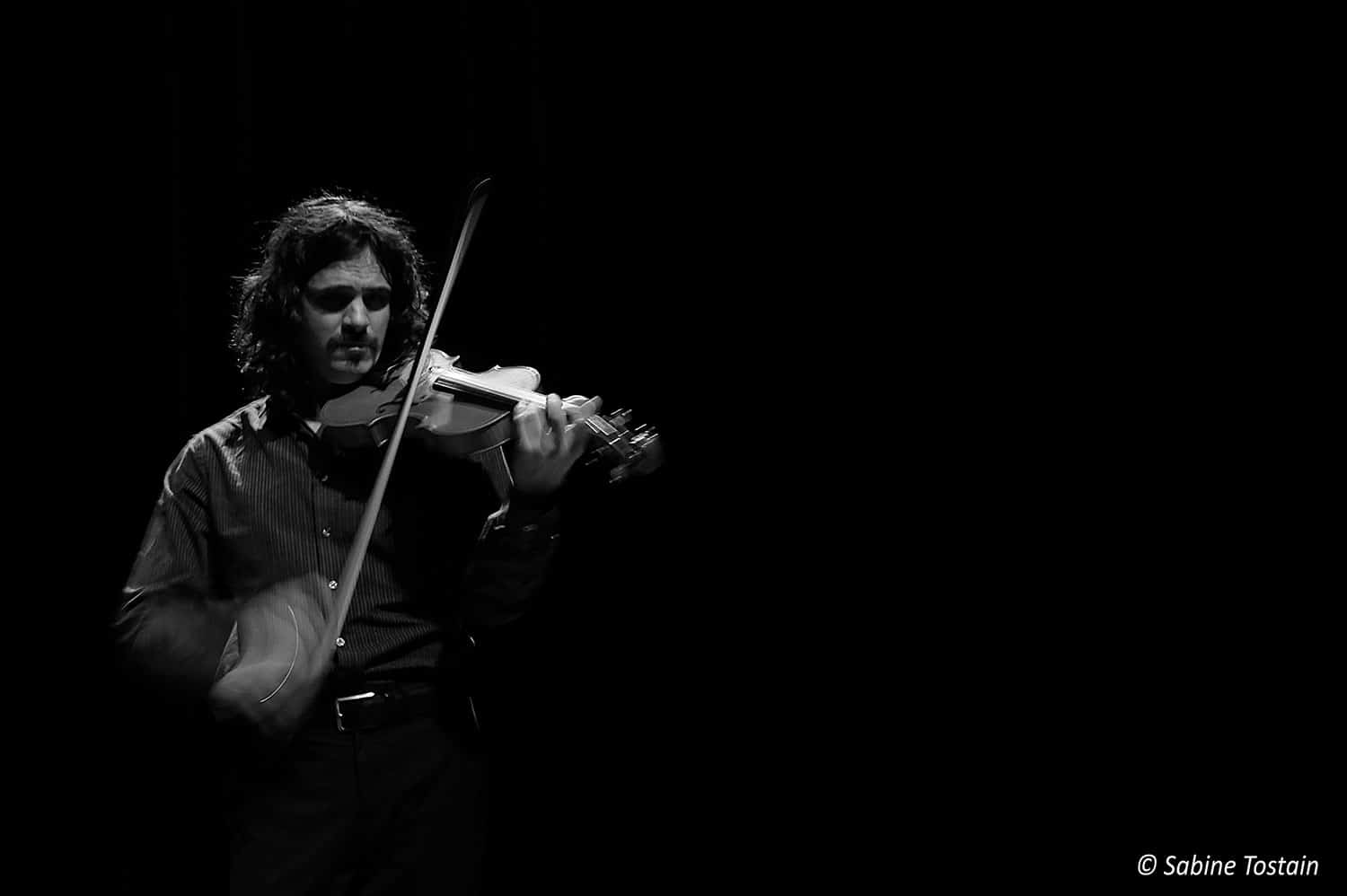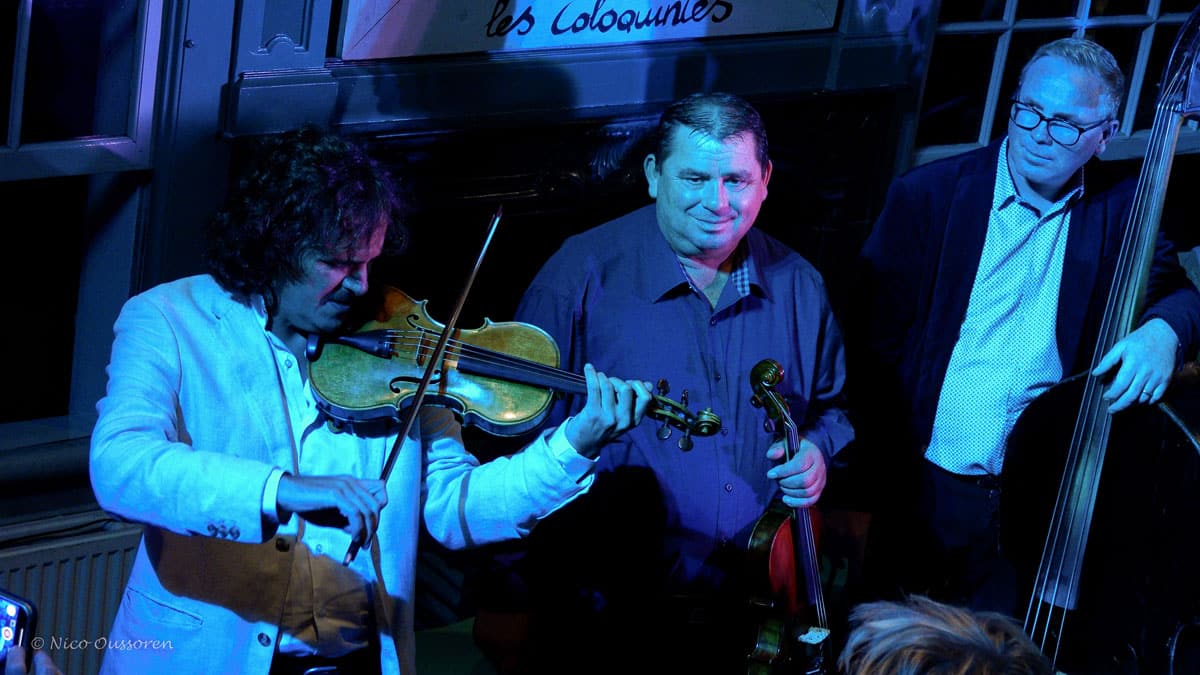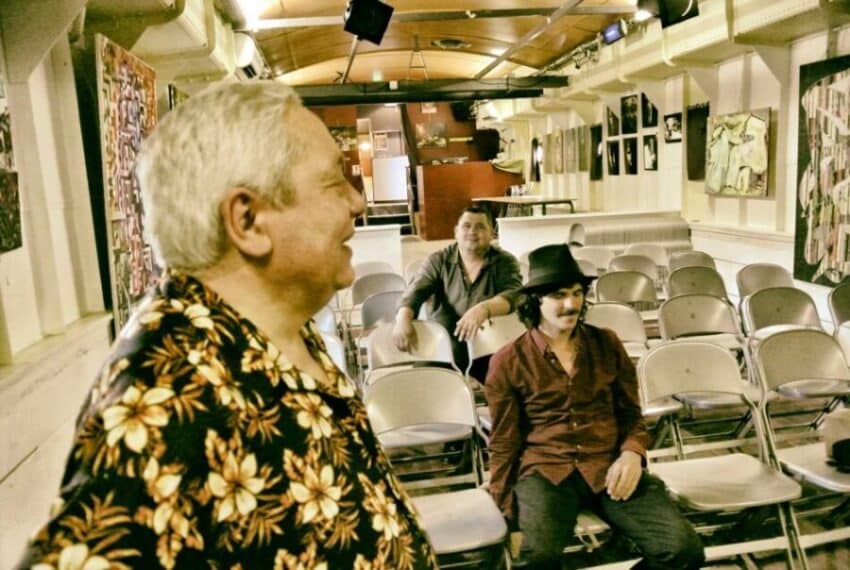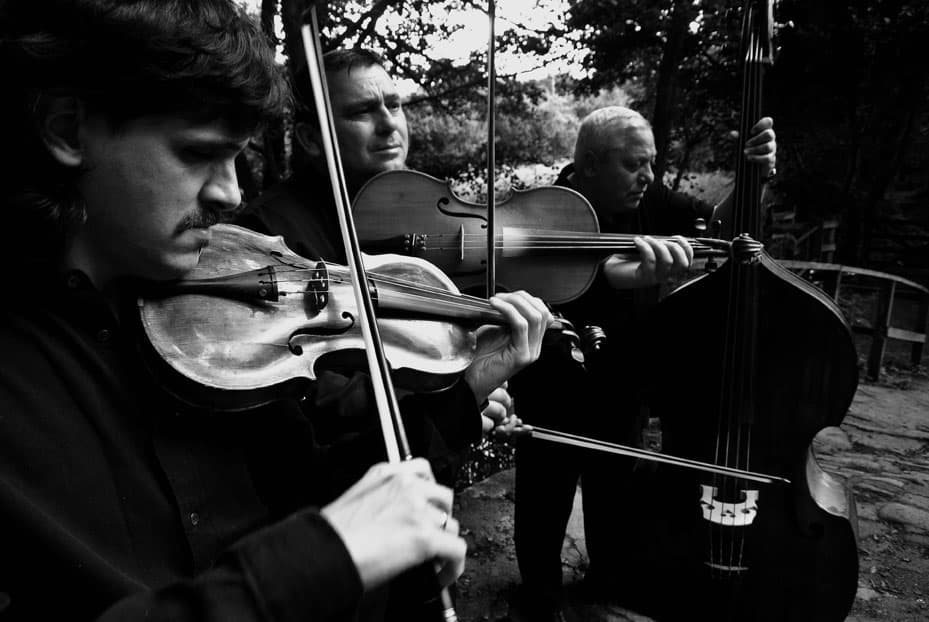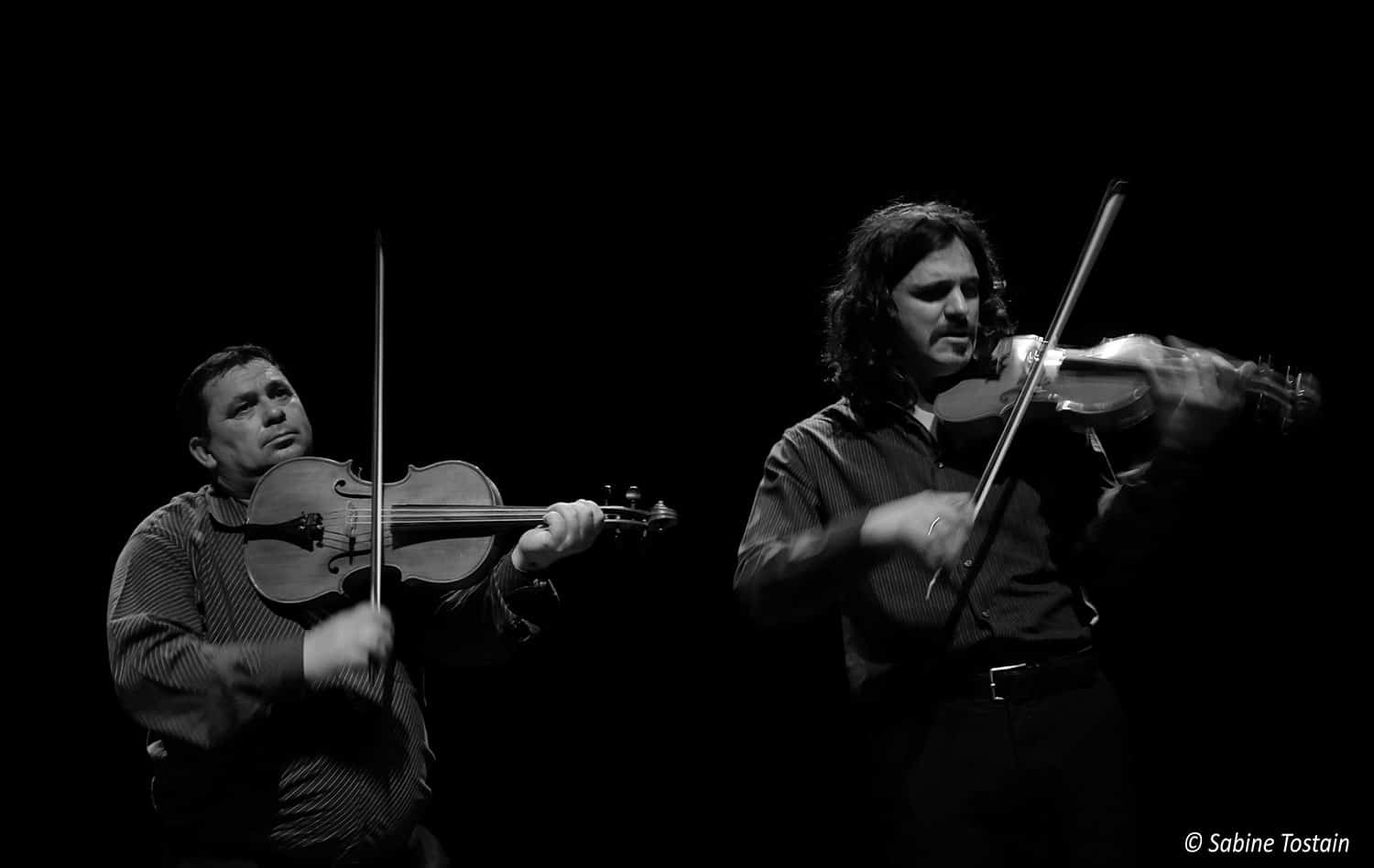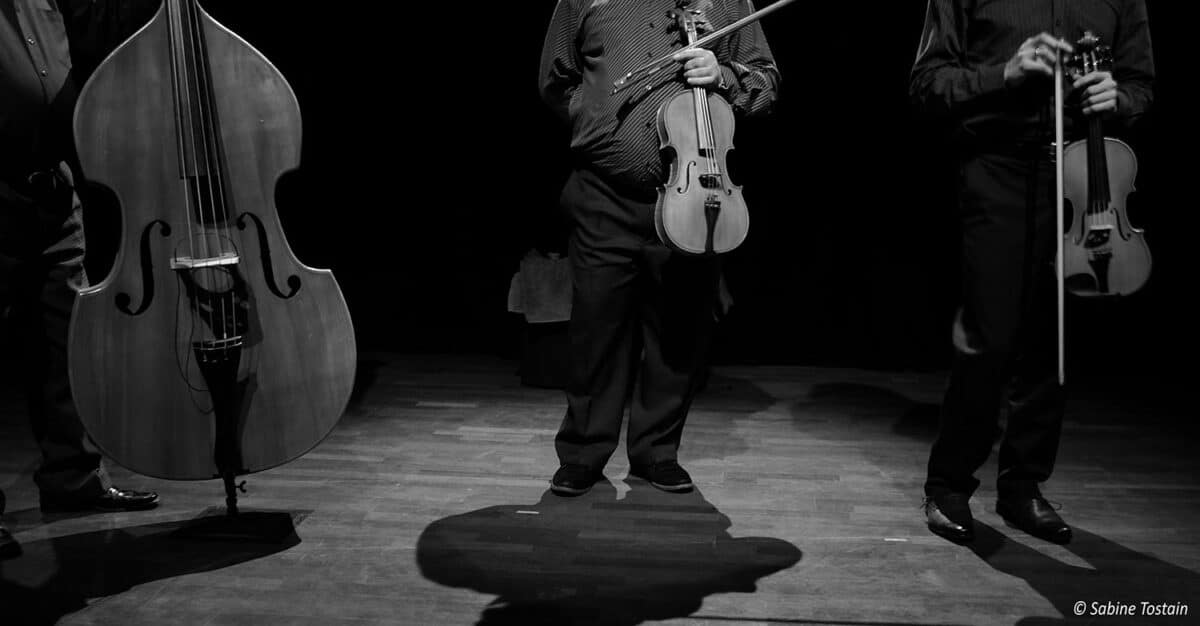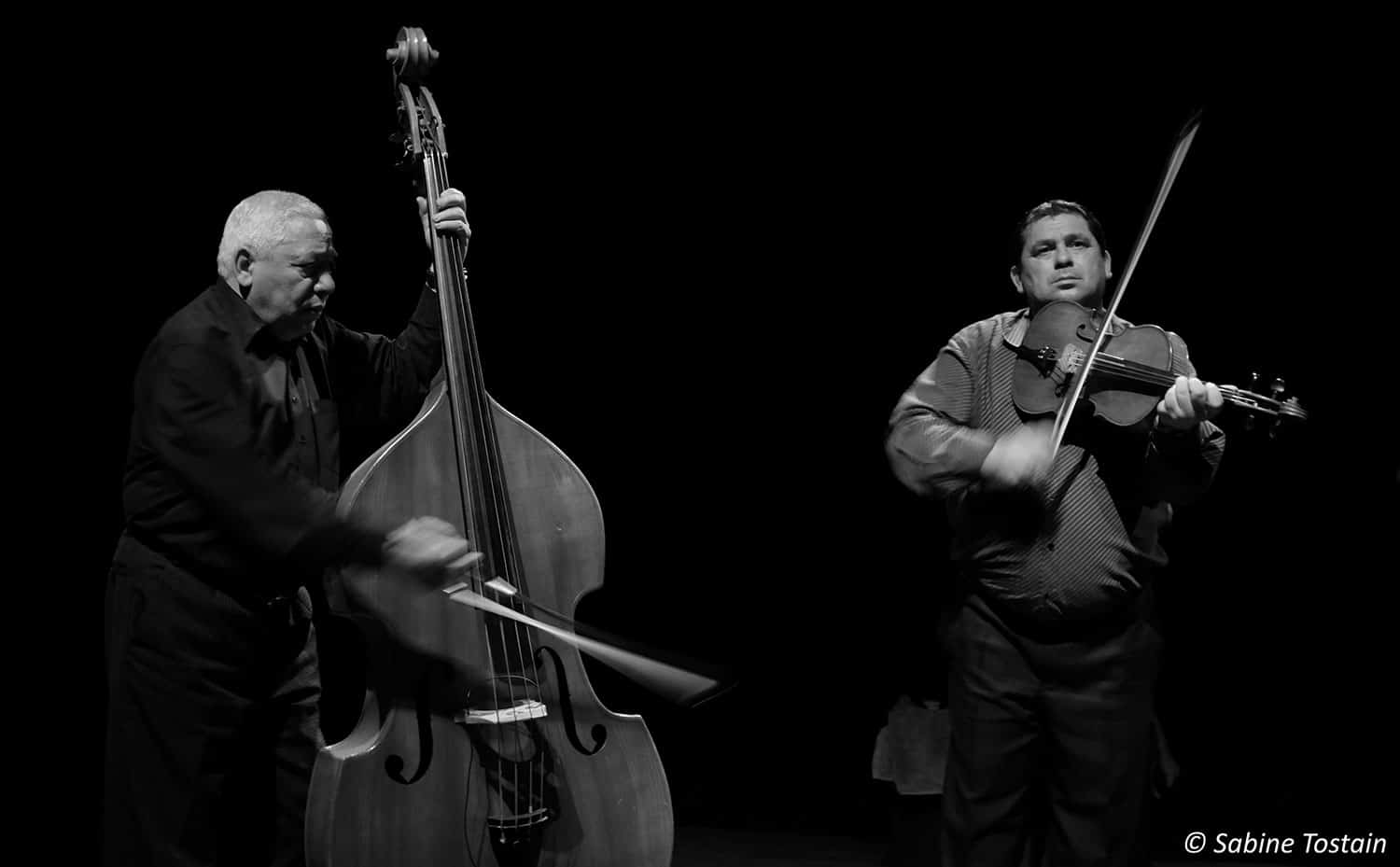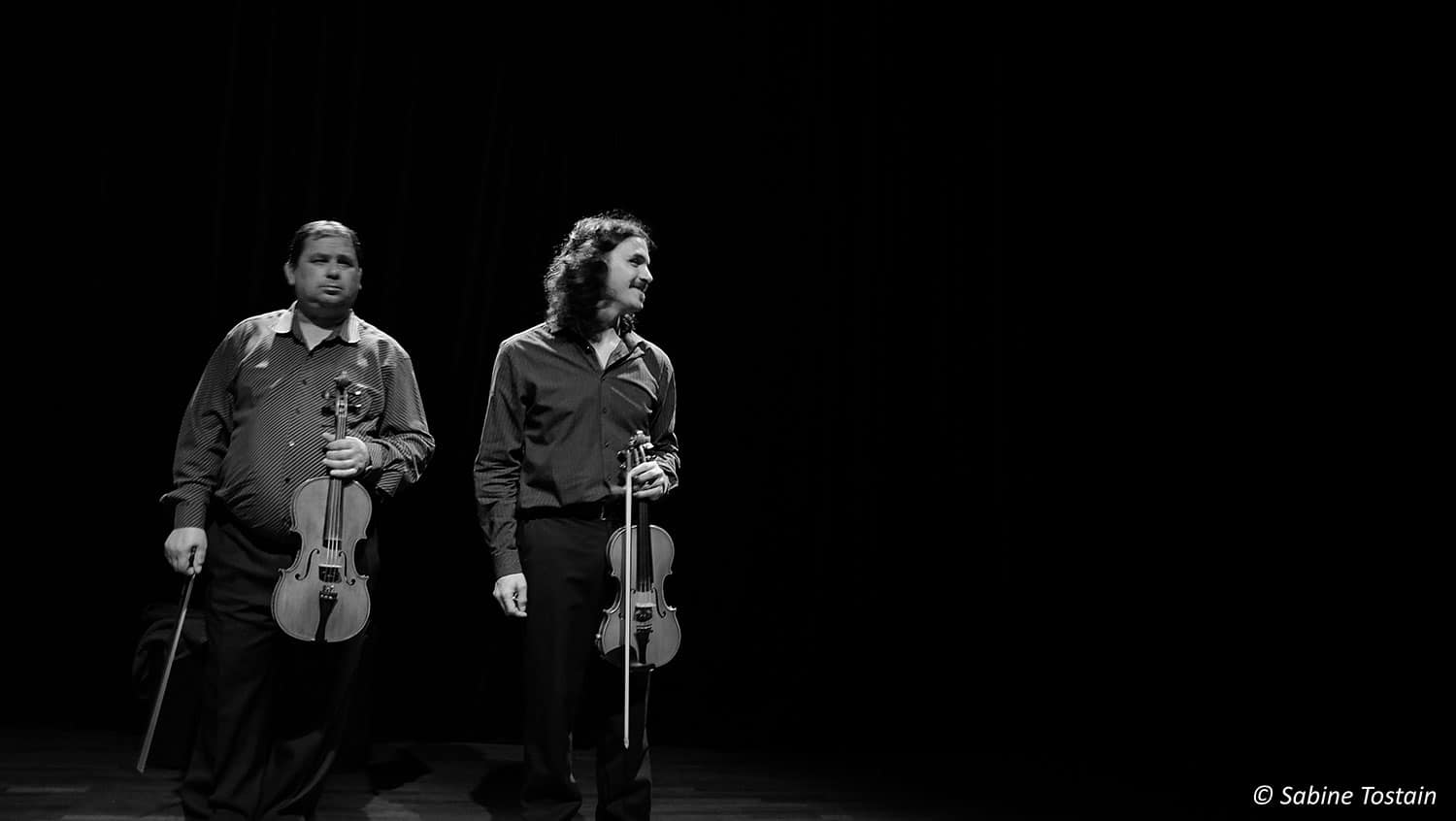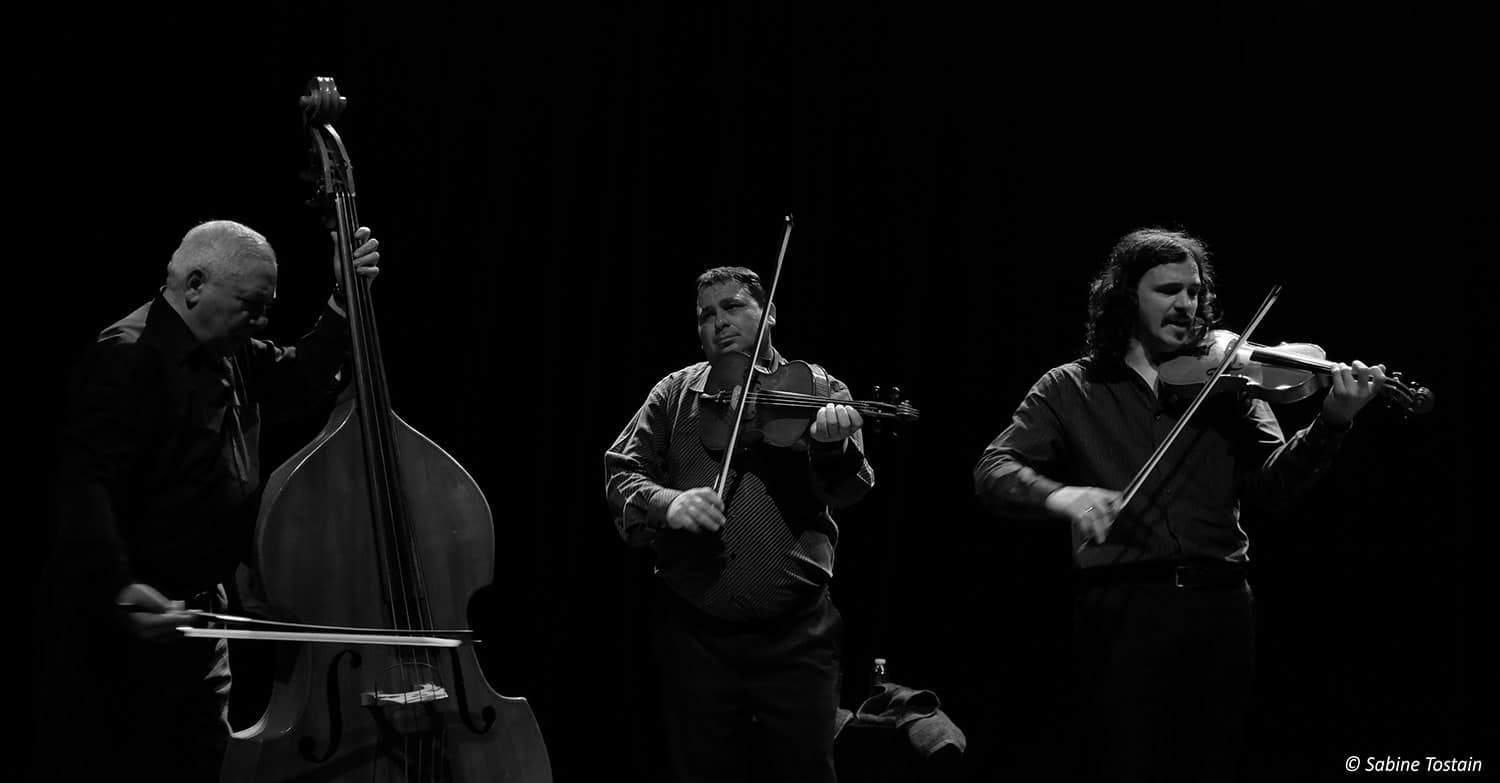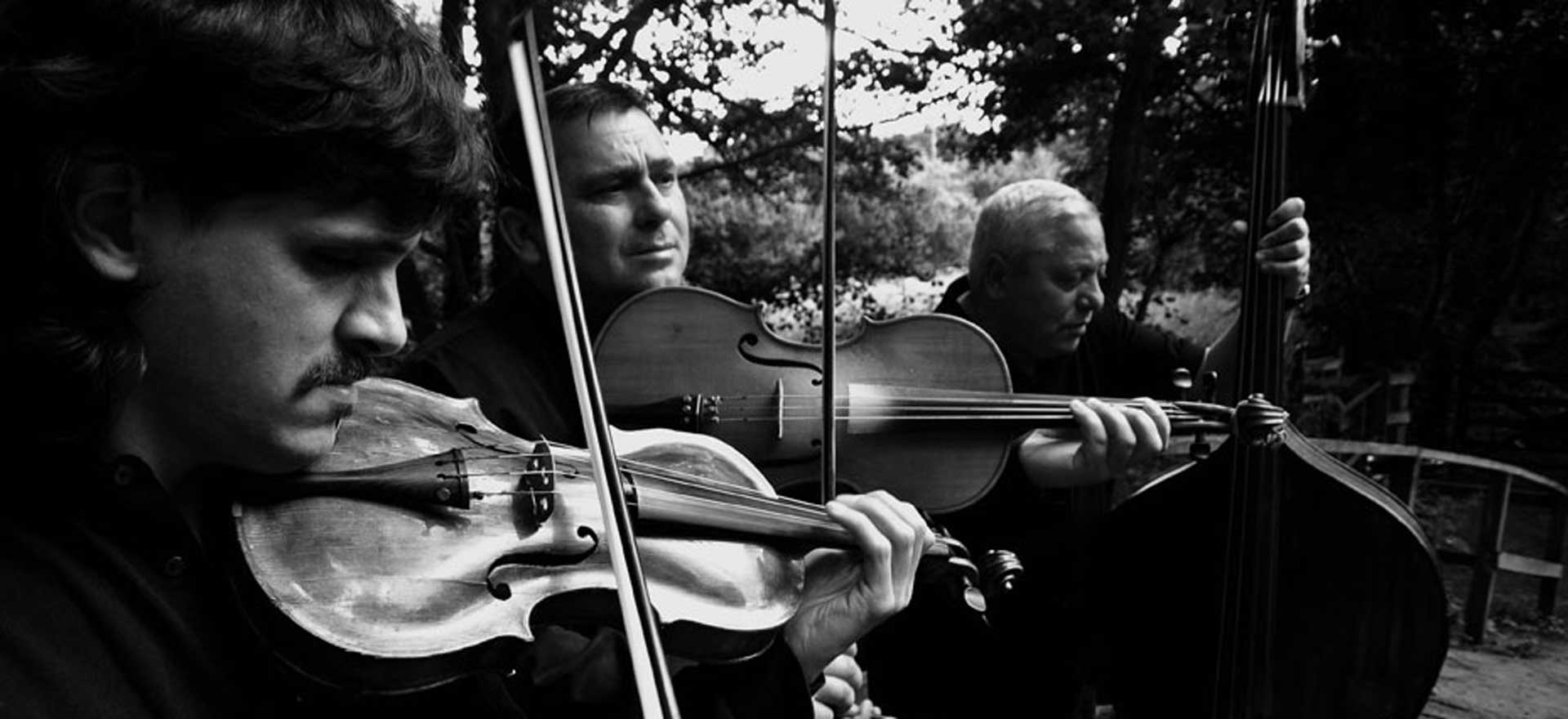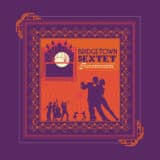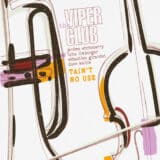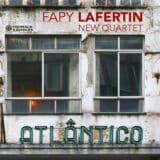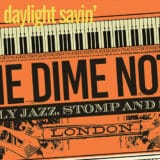Tcha Limberger’s Kalotaszeg Trio
Laments, Czardas’ and Szaporas from the Transylvanian region of Kalotaszeg with the beautiful voice and violin playing of Tcha Limberger.
Tcha Limberger has become recognised as one of the most prominent and important figures in folk music of the Carpathian Basin. He highlights the style considered to be the most beautiful of all Hungarian music with the highest regarded rhythm section of modern times, Berki Viktor on bass and Toni Rudi on Brac, for over 30 years the accompanists of the regions most famous Primas Neti Sandor.
TCHA LIMBERGER – Violin, Voice
TONI RUDI SNR – Brac
TONI RUDI JNR – Double Bass
TRACKLISTS & RECORDINGS
PRESS
SUNDAY TIMES UK
LONDONJAZZNEWS.COM UK
THE OBSERVER UK
LONDON EVENING STANDARD UK
SONGLINES UK
DJANGOSTATION FRANCE
No Events
Visit Tcha Limberger’s website
REVIEWS
SONGLINES UK 05.02.2010
Gypsy violinist who’s learned from the best
Violinist Tcha Limberger was born in Belgium to a Romani Gypsy father. His last disc, reviewed in Songlines #60, was a very fine one of Magyar Nota, the popular songs played by many Gypsy musicians in Hungarian restaurants – a style that’s rather waned in popularity in recent years. Limberger’s love of Magyar Nota took him to Budapest where he was introduced to a more vibrant tradition of village music in Transylvania. So he left Budapest with his Hungarian wife and settled in a small village in Romania, where he learnt from some of the masters of the Kalotaszeg region of Transylvania, an area much loved by Hungarian ethnographers – for it’s music, costume, wood carving and folk art. It lies between either side of the main road from Hungary towards Cluj, the capital of Transylvania. Limberger was fortunate enough to meet Sàndor ‘Neti’ Fodor, the best of the Kalotaszeg fiddlers (who sadly died in 2006), and the young Kis Csipas, one of the rising stars. On the evidence of this disc and his fantastic London concert in December he has absorbed the style fantastically.
In the Kalotaszeg Trio, Limberger is joined by Rudi Tóni on kontra (accompanying violin) and Viktor Berki on double bass – musicians who played with Neti in the last decade of his life. Kalotaszeg music is amongst the most beautiful folk music in Europe – with gorgeous, slow melodies (hajnali) sung at the end of wedding parties before sunrise, and springy, rhythmic dances such as the Szapora and Legenyes. This is powerful music full of energy and pathos.
SIMON BROUGHTON
DJANGOSTATION FRANCE 23.02.2010
A hajnali csillag ragyog
Après un très beau premier album sorti l’année dernière sur le label anglais de Dave Kelbie Lejazzetal, le violoniste Tcha Limberger continue son exploration des musiques traditionnelles d’Europe centrale en sortant un nouveau disque intitulé… A hajnali csillag ragyog’.
Resserrant son domaine d’étude et de découverte, Tcha s’est ici particulièrement intéressé à une région ethnographique et rurale de Transylvanie (Roumanie) appelée le Kalotaszeg. Si dans cette musique, il est toujours difficile d’affirmer que telle ou telle pièce est hongroise, roumaine ou tsigane tant les styles se croisent et se transforment au fil du temps et des voyages, c’est cependant au Kalotaszeg qu’on peut entendre les airs les plus vivants et les plus profonds. La région étant également un véritable vivier d’exceptionnels musiciens (comme le célèbre violoniste Neti Sandor), on comprend pourquoi Tcha Limberger l’a trouvée fascinante. Il y a d’ailleurs découvert les deux musiciens qui l’accompagneront sur ce disque. Anciens accompagnateurs de Neti Sandor, Toni Rudi (bratsch) et Berki Victor (contrebasse) connaissent bien sûr les Magyar nota et les musiques de Bucarest mais sont surtout de grands spécialistes du répertoire du Kalotaszeg. Le trio qu’ils forment avec Tcha Limberger au violon sonne d’ailleurs parfois comme un grand orchestre à cordes !
La musique qu’on entendra ici se composent d’airs typiques dont les définitions rappelées dans les liner notes évoquent bien la poésie de leur propos : Keserves : pièce lente, plainte, Hajnali : pièce lente, chantée souvent à la fin d’un mariage, quand le soleil se couche, Legenyes : danse masculine rapide, où les jeunes garçons peuvent montrer leur adresse et leur force, etc… ! Il y a aussi les Csardas, les Invartita, les Verbunk, les Szapora… danses toutes plus ou moins rapides, plus ou moins entraînantes mais dont l’émotion est toujours formidablement rendue par le talent des trois musiciens. La voix de Tcha Limberger atteint d’ailleurs parfois sur certains hajnali des intonations proprement déchirantes. “Si j’aime passionnément cette musique du Kalotaszeg, déclare Tcha Limberger, c’est bien sûr à cause de la splendeur de ses campagnes, de l’air pur et de la chaleur des gens, des choses que je peux entendre dans cette musique. Elles me donnent envie de jouer cette musique même si je ne suis pas au Kalotaszeg, comme si j’en étais nostalgique…”
Tcha Limberger aime passionnément cette musique si singulière d’Europe centrale dans laquelle se coexistent en toute sérénité des influences hongroises, roumaines, juives et tsiganes. Ce qui est sûr aussi, c’est qu’il aime passionnément nous la faire partager.
SEBASTIEN LEGE
English
After a very nice first album, released last year on Dave Kelbie’s English label Lejazzetal, Tcha Limberger continues his exploration of the music from central Europe by making this new album called ‘a hajnali csillag ragyog’. The music he studies and discovers here is from the rural etnologic region called Kalotaszeg. As difficult as it is to say whether a piece is Hungarian, Romanian or Gypsy, as there are many transformations and crossovers.
It’s in Kalotaszeg though that you can find the most lively and deep pieces of music. It is also a region with a lot of interesting musicians like for example Neti Sandor. It is easy to understand why Tcha became fascinated by Kalotaszeg. There he discovered the two other musicians on the cd, who were the past accompaniers of Neti Sandor. Both Toni Rudi on bracs and Berki Viktor bass, naturally know Magyar nota and the music from Bucharest, but they are great specialists in the music of Kalotaszeg. The trio they make with Tcha Limberger sometimes sounds like a big string orchestra.
The music we hear here consists of typical melodies. The liner notes, explain well the characteristics of each of them. Keserves – slow piece; hajnali – slow song, often performed at sunset at the end of weddings; the legényes is a good chance for the young boys to show their virility. There are also the czardas, invartita, the verbunk, and szapora, all dances with a light character of which the emotions are really nicely performed by the trio.
In some of the hajnali Tcha Limberger’s voice reaches heart breaking qualities. Tcha Limberger explains, ‘if I like passionately the music of this region, it certainly is because of the beauty of it’s landscapes, the pure air and the warm hearted people, things I can hear in the music. This music makes me want to play, even when I’m not in Kalotaszeg, as if I were nostalgic not to be there.
Tcha Limberger passionately loves this music in which so many exist so smoothly next to each other, Hungarian, Romanian, Gypsy and Jewish elements. It is sure, that he loves it passionately, to share this music with us.
SEBASTIEN LEGE

